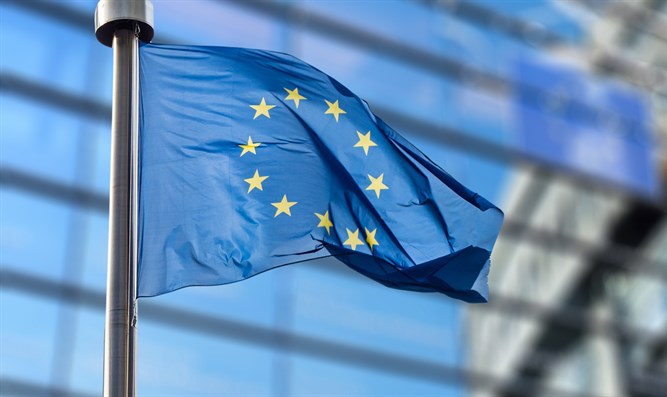Opinion: The EU Declaration is like rearranging deckchairs on the Titanic, missing crucial issues concerning antisemitism. Here they are.
The European Council consists of the heads of the governments of its member states. It sets the EU policy agenda by identifying issues of concern and action to take. On December 2, the European Council accepted a declaration mainstreaming the fight against antisemitism across policy areas. When analyzing this text one finds that it is at least as important to discuss what is lacking in it as what is there.
The declaration said that the EU Council “expresses its concern at the increase in threats to Jewish people in Europe and the resurgence of conspiracy myths, especially in the context of the Covid-19 pandemic as well as the increase in antisemitic incidences and hate crime.”
The text also said that “antisemitism has developed into various forms and must be combatted with complementary public policies. Illegal hate speech and online terrorist content must be removed promptly and consistently by internet service providers. A strong and systematic judicial response to antisemitic acts is also necessary.”
The declaration ends by saying that the member states “also welcome the European Commission’s decision to make the fight against antisemitism a priority, as well as the strengthening of the institutional basis for the coordinator on combating antisemitism and fostering Jewish life.”
But what is not in the declaration, which reasonably should have been there?
While remaining concise, it should still have mentioned several crucial issues concerning antisemitism. These could fill many more declarations than the text contained.
First of all the declaration should have referred to a definition of antisemitism. By far the most accepted is the one of the International Holocaust Remembrance Alliance (IHRA). The acceptance of this text in the IHRA required the approval of all its member states. These include the great majority of EU countries.
Second, European antisemitism precedes the creation of Europe more than a thousand years ago. It is not only that antisemitism is nowadays increasing. Clearly it’s an integral part of European culture, and widespread in European societies. The EU Council should have made it clear that without an in-depth investigation of Europe’s past extreme misbehavior toward the Jews, conclusions about current policies to follow will be defective. Referring only to what is recently happening takes away the historical perspective. The infrastructure for nationalist/ethnic antisemitism was laid via extreme Christian antisemitism. That in turn led to the genocide of Jews in the Holocaust.
Third, the declaration doesn’t refer to another important fact: despite all the words it has spent during the years on antisemitism, the EU Commission still has no comparative data from its member states on antisemitism there.
Fourth, there is no reference in the declaration to the relation between immigration and antisemitism. There are no checks of immigrants entering the EU as to whether a person holds antisemitic views. This is particularly relevant for Muslim immigrants among whom the percentage of antisemites is far higher than within the pre-existing population.
German Chancellor Angela Merkel’s policies of almost unchecked mass immigration since 2015 have made Germany Europe’s largest importer of antisemites. That led also to the growth of a new rightist party, the AfD. Its more extreme wing has fascistoid opinions. Some individual members may hold even more radical views.
Fifth, the EU Commission has ignored all statistics, which show the widespread belief in European countries that Israel intends to exterminate the Palestinian Arabs, or “behaves toward them like the Nazis.” Those beliefs have been triggered and are being fueled by pro-Palestinian, anti-Israel groups and organizations.
Sixth, there is no reference in the declaration that the fight against antisemitism should be led by a commissioner at the highest level of the EU Commission.
Seventh, an issue which should have been included in the declaration is antisemitism against Jews who are in the most vulnerable positions. Here school students come to mind. Often Jewish victims of harassment had to leave their schools, while perpetrators were permitted to remain.
Eighth (and definitely not least), the EU has its own antisemitism to contend with:
1. According to the IHRA definition, voting patterns of European states on anti-Israeli resolutions at the UN and associated bodies of a number of European states can often be considered antisemitic acts.
2.The EU Commission’s decision to label goods from the disputed territories of the ‘West Bank’ without doing the same for occupied territories by other democratic nations was an antisemitic act.
3. The issue of whether providing financial assistance by the EU and several of its member states to the Palestinian Authority (PA) is an antisemitic act should have been raised. This should be noted especially in view of the fact that the PA awards much money to terrorist murderers of Jews.
4. There are also credible accusations that the EU finances NGO’s with terrorist links.
Yet the real litmus test for the EU will come when the EU Commission document about its strategy for combating antisemitism is published. Only then will be seen in much more detail how serious that body is in genuinely trying to combat the world’s oldest hatred.
(Dr. Manfred Gerstenfeld, Arutz 7).
